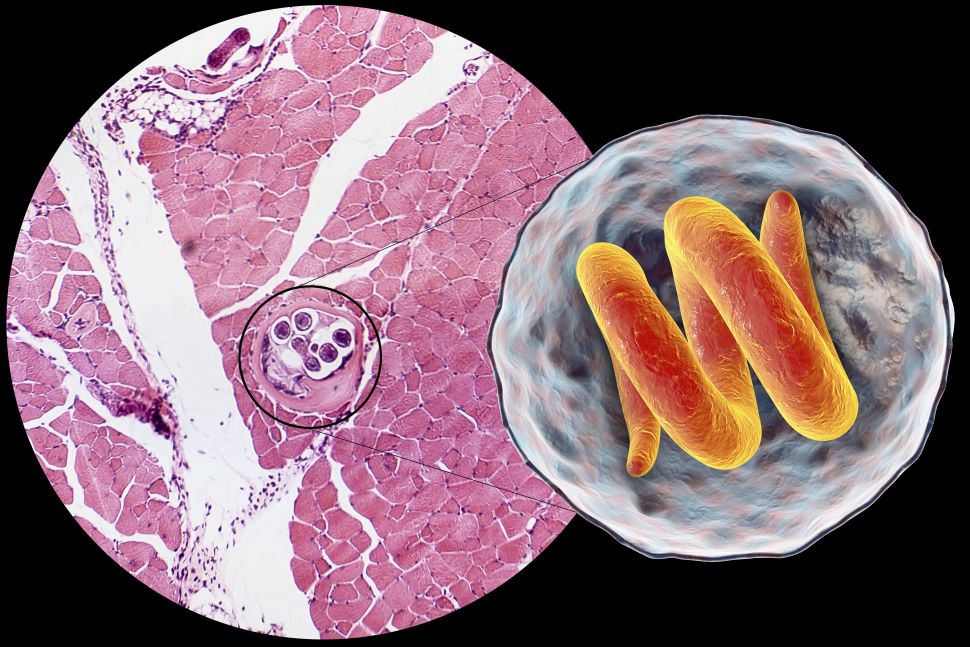Trichinosis, a parasitic disease transmitted by consuming infected meat from domestic pigs and wild game, is a serious health threat. Trichinella larvae, introduced into the body through contaminated meat, can cause permanent consequences. If the symptoms are recognized in the first seven days, the larvae can be removed with therapy. However, complete recovery is not possible, because the larvae remain in the muscles for up to 30 years, and in severe cases they can reach the brain, causing irreversible damage. Symptomatic therapy is then applied, which promotes the calcification of the larvae in order to reduce the damage.
Prevention is key and includes a mandatory inspection of meat after slaughtering domestic pigs or hunting game. According to Dr. Jelena Petković from the Veterinary Specialist Institute in Jagodina, the laboratory examination of meat is performed using the method of artificial digestion, which is the gold standard in the detection of trichinella and is legally required for wild game. Last year, of the 1,050 samples examined, over 80% were game meat brought in by hunters. Hunters in Serbia are highly aware of the importance of meat inspection, as it is a legal obligation and the key to protecting the health of people who consume wild boar meat.
Trichinosis is still a massive problem
Control in slaughterhouses is carried out under the supervision of inspectors, while individual producers are often problematic because they do not inspect all animals, considering that those from the same litter are healthy. This increases the risk of spreading trichinosis. In regions like Mačva and Vojvodina, where the disease is more common, meat owners are much more careful and regularly bring samples for inspection. Dr. Petković notes that after the discovery of a positive case, there is usually an increased interest in examinations.

On the territory of the Šumadija and Pomeranian districts, not a single case of trichinosis was recorded last year, while since the beginning of this year, one positive case was detected in wild boar meat. These data indicate the importance of continuous control and education in order to prevent the spread of the disease.
Trichinosis can be prevented by simple measures – mandatory inspection of meat before consumption, especially among local producers and hunters. Maintaining hygiene standards and complying with legal obligations are key to reducing risks and preserving public health.
Source: AgroTV
Source: boljazemlja.com


